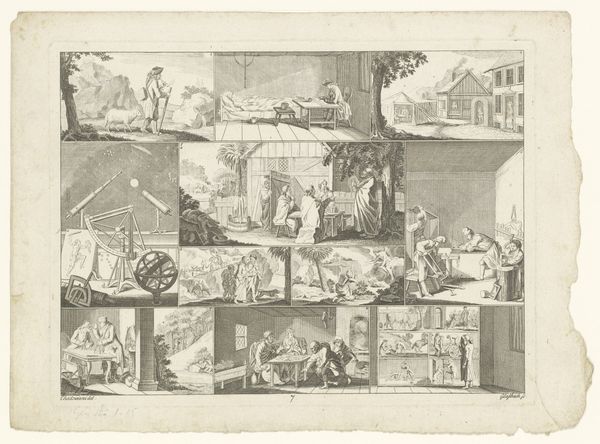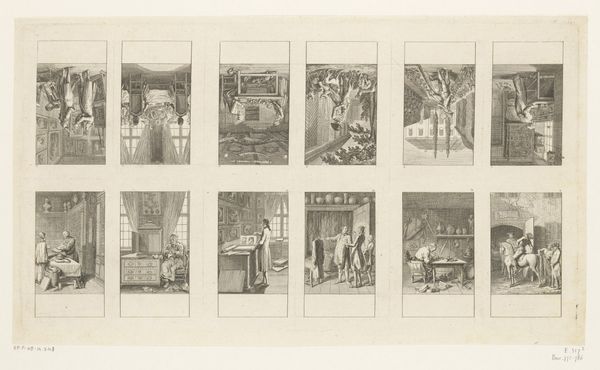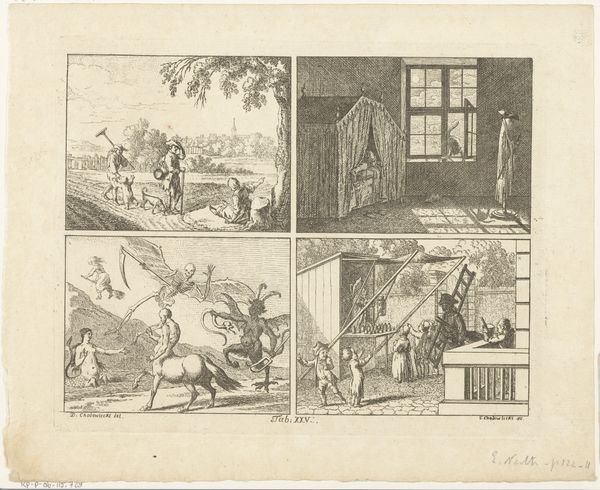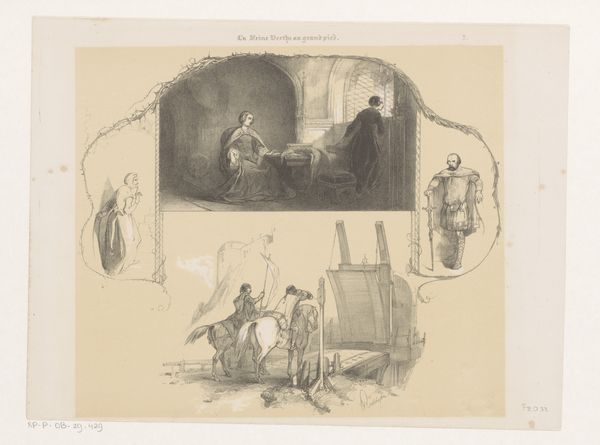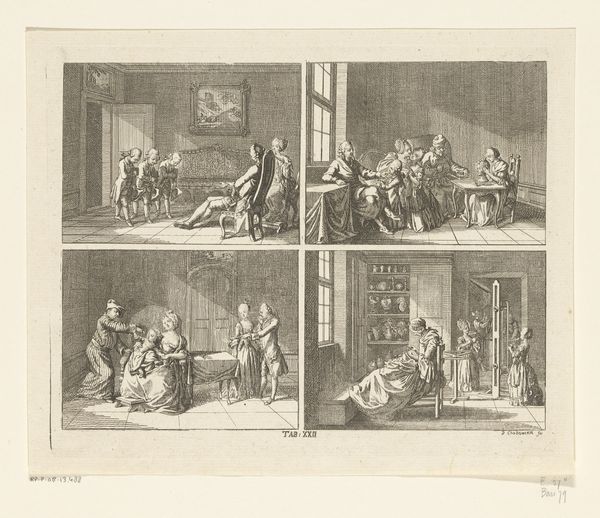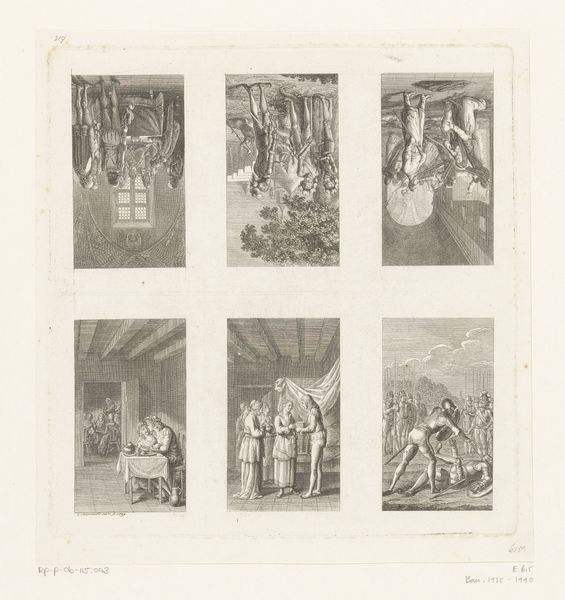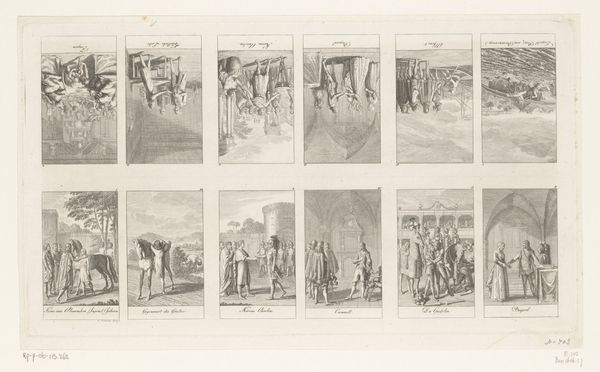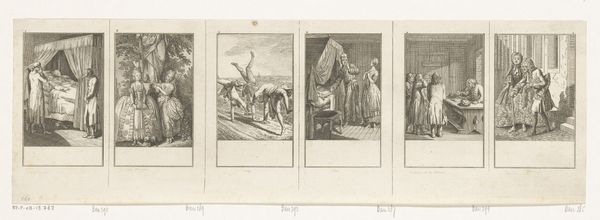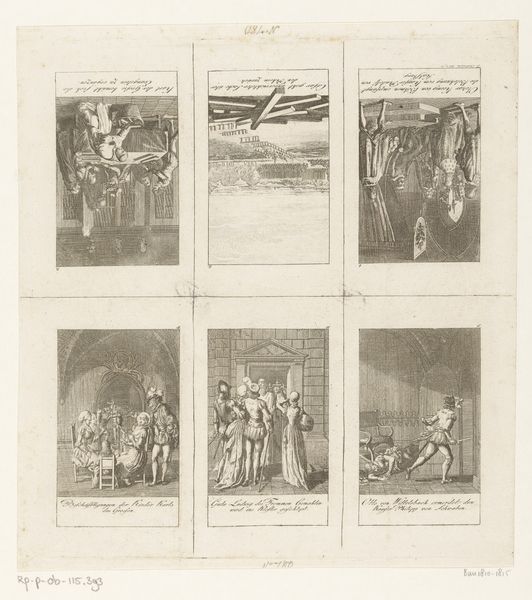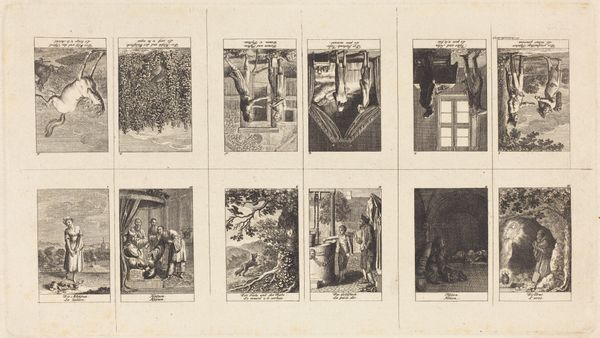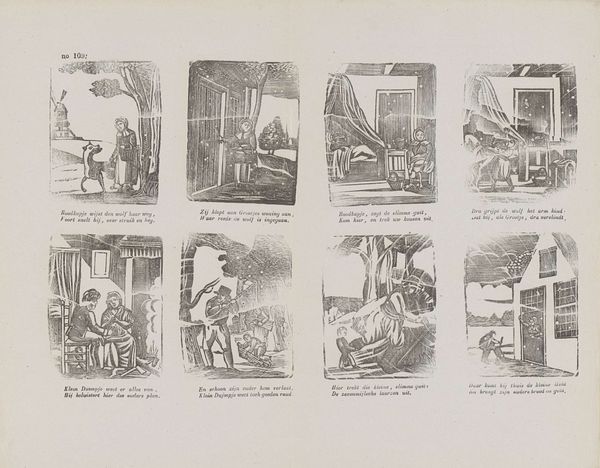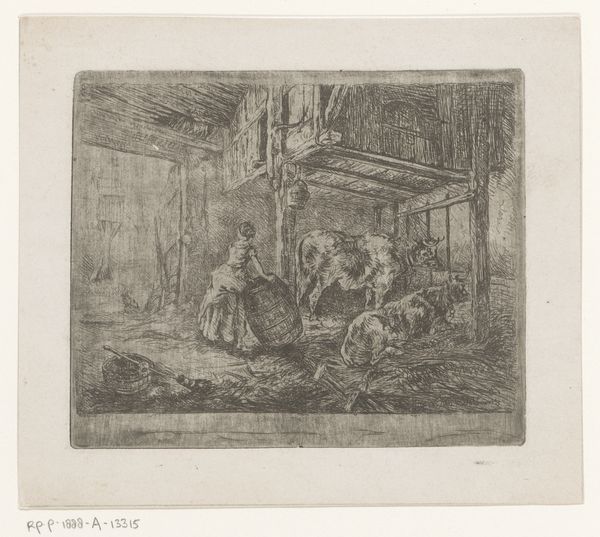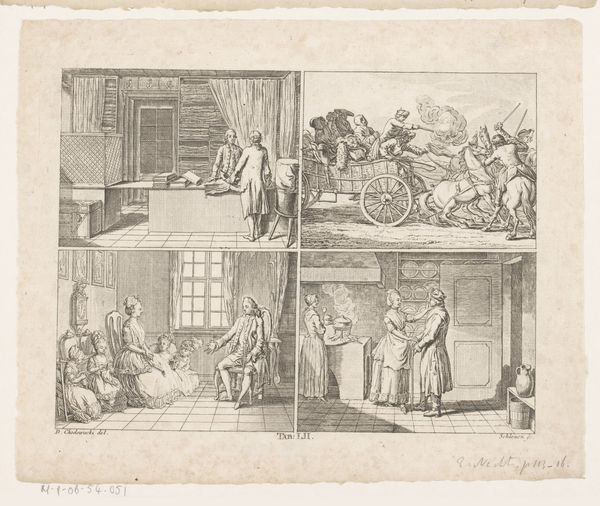
Zeven scènes die betrekking hebben op waarneming en interpretatie 1774
0:00
0:00
christophwilhelmbock
Rijksmuseum
print, paper, engraving
#
neoclacissism
# print
#
paper
#
genre-painting
#
history-painting
#
engraving
Dimensions: height 185 mm, width 238 mm
Copyright: Rijks Museum: Open Domain
Editor: Here we have Christoph-Wilhelm Bock's "Seven Scenes Relating to Perception and Interpretation," an engraving from 1774 currently housed at the Rijksmuseum. It's composed of small vignettes, like a comic strip, each portraying what seems like a scientific experiment. I'm intrigued by its Enlightenment era curiosity. What kind of context can you give me for a piece like this? Curator: Well, seeing this work through a historical lens, it’s fascinating to consider how it reflects the changing role of knowledge and visual representation in the late 18th century. Bock, working in the throes of the Enlightenment, demonstrates that empirical observation and scientific inquiry aren't isolated, objective pursuits. Instead, they are shaped by social forces. Consider who is engaging with these "experiments" and in what contexts? Editor: It’s true, most scenes involve groups, social dynamics. So are you saying this piece comments on science becoming more of a public performance? Curator: Precisely! Note the theater-like staging of some vignettes, highlighting science's spectacle aspect. The circulation of prints like this democratized access to scientific ideas, albeit within particular social structures. Editor: It also makes me think about power. Who gets to conduct these experiments, and who's merely observing? Does that dynamic hint at something? Curator: Absolutely! Consider how images of science often served the ruling classes, legitimizing their authority by association with intellect and progress. But did these representations translate to genuinely accessible and applicable benefits to everyday people? Editor: That is a complex issue. It makes you question what progress actually meant, and for whom, in that era. Thank you for bringing attention to this artwork. Curator: And thank you! The questions art brings up allow us to see history in fresh ways.
Comments
No comments
Be the first to comment and join the conversation on the ultimate creative platform.

